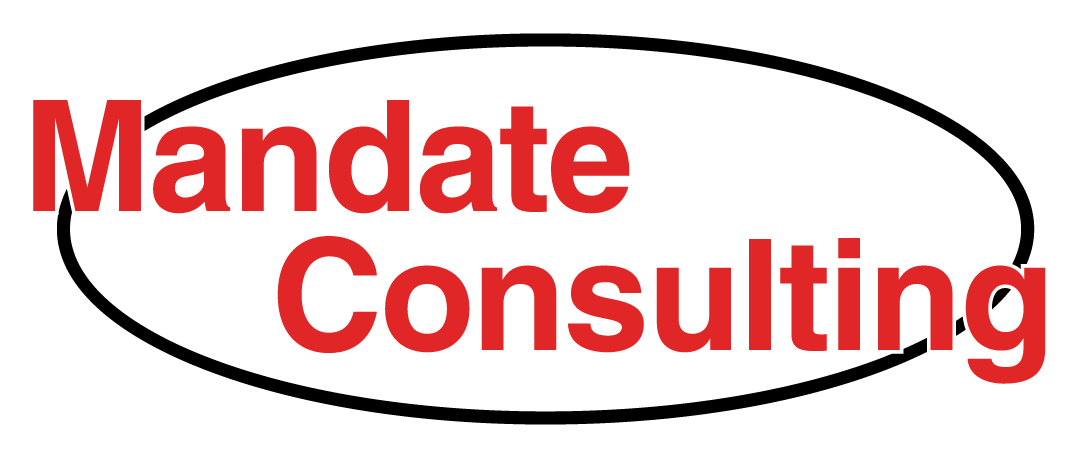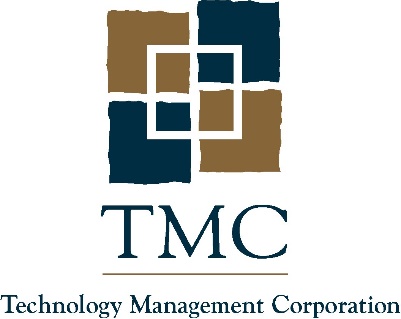November 26, 2022
DIGITAL ADOPTION PLAN
As a digital advisor, it is crucial that we consider the client’s entire business environment in order to create a strategy. The fundamental emphasis on all consulting engagements is how the business problem can be addressed through a more effective use of technology.
DIGITAL ADVISOR PROFILE
Mandate Consulting began in 1987 and is a full service management consulting firm with offerings in all areas of business development, operational performance, business transformation and succession planning. Mandate Consulting and its associate consultants are readily available to review and deliver digital adaptation assessments; Mandate is independent of any hardware or software technology vendors.
Lorne Boyle, as President and Principal Consultant has over 35 years of consulting experience. As a Fellow, Certified Management Consultant (FCMC©) Lorne has provided extensive technology and business consulting services to small enterprises, large and international corporations and municipal, civic, organizations and provincial and national executive government ministries and crown corporations. Lorne holds a BSc (Computer Science and Mathematics) from Brandon University and has held the prestigious Information Services Profession designation from the Canadian Information Processing Society. Lorne was the lead consultant on the award winning team that won the 2022 Constantinus Gold Medal recognizing the best management consulting project in the world.
Mandate Consulting’s risk management methodology complies with the ISO31010 Risk Management model and has been acknowledged by the Saskatchewan Provincial Auditor as an effective method for managing program and enterprise risks.
As a Management Consulting firm, Mandate Consulting is ISO 20700 certified and has led and delivered on significant business and technology transformations with many clients.
As a Certified Management Consultant firm, Mandate Consulting is bound by the Code of Professional Conduct of the Canadian Association of Certified Management Consultants (CMC-Canada). This code of ethical conduct ensures the emphasis of all consulting engagements put the client first.
Mandate Consulting Ltd, as a digital adoption advisor, is partnered with a full service Marketing/Advertising agency. Together, we provide clients with a powerful solution for all technology adoption needs.
Mandate Consulting – The Digital Advisor Advantage
As a digital advisor, it is crucial that we consider the client’s entire business environment in order to create a strategy. The fundamental emphasis on all consulting engagements is how the business problem can be addressed through a more effective use of technology.
Business strategy is the foundation of the execution of a digital adoption framework. Working with the client enterprise team, the Mandate Consulting approach begins with a business strategy assessment including the analysis of their current technology adoption. It is important to ensure all recommendations are tailored specifically to the client’s needs and to provide a strategic and tactical plan structure to enable the client to successful implement technology improvements.
Next, a gap analysis is completed. A collaboration including key client and Mandate Consulting resources candidly determines areas of weakness to determine the business areas needing improvement. We always communicate extensively and collaborate with the business team so we are able to select proper application improvements.
To enhance operational efficiency, we review the effectiveness of business processes and recommend process improvements prior to engaging in a technology solution. An adjusted operating process fully enabled with technology will pay dividends to the business.
We must understand emerging opportunities – The best way to seize emerging business opportunities is by completing a business review of bottlenecks that can be improved with the use of the correct digital platform. Matching the selected platform to the business problem to deliver the solution is done only after the problem is clearly understood. This puts the best solution in place for the business. Solutions can be an e-commerce, social media or service platforms to increase marketing, sales or operational results. Recommendations will only be brought forward to solve a business problem.
The product selection process includes analysis of all technology options to ensure the best solution is chosen for the client. Once a solution is recommended, the priority shifts the successful transition of new technology to the operation of the business. Technology adoption means so much more that installation of a software product. Mandate will work with the client to ensure a successful application adoption through effective formal change management.
By implementing effective information decision systems, Mandate Consulting enables a more informed client who can improve their technology management decisions. After an assessment of the information needs of executives and managers, we identify the silos of information and plan an analytical and reporting structure that contribute to more informed decision making.
By assessing current application portfolios and business capabilities, we help the organization to articulate requirements and generate an application modernization plan.
Risk management is key to our decision making and will always be used to ensure sufficient consideration is provide to inform business decisions.
Other critical business components we stress is that of cyber-security, data management and access management when considering digital transformation improvements.
Digital Transformation Strategy with Digital Vision, Roadmap and Execution – we use a straightforward process to generate the Digital Vision, a Digital Strategy, an Implementation Roadmap and Execution Plan in order to enable tech people to help the organization to thrive.
THE MANDATE CONSULTING BUSINESS TECHNOLOGY-ADOPTION ASSESSMENT
The Mandate Consulting analysis of operational components will determine the client’s digital maturity across eight key operational indicators that we feel are critical for success in today’s digital business world. These indicators are compared against our internal benchmarks. The digital maturity score represents the company’s ability to respond to market change and take advantage of technological developments to remain relevant in their marketplace. Our report will also illustrate priorities and focus areas as that will enable the client to start and success at digital transformation.
The key analysis area in the client organization are identified and we indicate what and why these areas are of importance
- Customer Experience:
How the business is able to use digital technologies and processes to design seamless, intentional experiences for customers, employees and partners, supporting the customer value propositions and delivering business objectives - Products & Services:
Defines the business appetite to invest in digital technologies in order to develop compelling customer value propositions (pricing, products and services, promotions) and intelligently engage with the customer base to drive profitable growth - Strategy:
Is the overall vision built with respect to digital and data, which would include developing a digital vision and associated strategic actions to exploit data, institutionalize advanced analytics for data driven decision making and having a real-time understanding of the customer and the business. Data driven insights are a key to shaping integrated business decisions and planning actions - Interactions & Data Security:
Denotes the business’ ability to securely interact with its customers through digital channels and technologies and protect against privacy and cyber security threats - Technology:
Depicts a business’ approach to its technology platforms, tools and architecture in order to create secure, scalable and cost-effective digital services - Operations:
Defines the business capability in adopting digital technologies to operate the business with enhanced efficiency and agility from a front, middle and back office perspective - Organization:
Defines how a business is structured from a people and leadership perspective to use digital technologies to become data-driven, employee-friendly and customer-centric - Partners & Alliances:
How open a business is to engage with, integrate and manage partners and alliances
Detailed analysis in each operational area is completed based on further inquiries. We analyze the response to the following areas to establish an operational rating.
| ANALYTICAL QUESTIONS | |
|---|---|
| Customer Experience |
|
| Products & Services |
|
| Strategy |
|
| Interaction & Data Security |
|
| Technology |
|
| Operations |
|
| Organization |
|
| Partners & Alliances |
|
Our analysis process cross references client response to enable our process to provide a business technology rating in five key strategic technology pillars.
- Digital Modernization:
Align the business strategy with a digital strategy and develop a digital transformation roadmap along with a data management strategy - Digital Restructure Finance:
Align financial and digital transformation goals, identify key partnerships and tools to finance a digital transformation program - Sales & Marketing:
Integrate sales and marketing strategies into the digital transformation journey leveraging technology for enhanced customer management - Structural & Regulatory Alignment:
Align legal structure with the digital transformation program focused on protecting its organizational assets such as IP, trademarks, copyrights, patents while navigating gaps in law and regulations as related to new technologies - Technology Infrastructure:
Develop a data architecture, integrate multiple hardware, software, and platform tools, adopt cloud services into business operations and ensure end-to-end security as part of its digital transformation journey
When the analysis is complete, we are able to provide a rating in each of the transformation areas which will guide the business in establishing a go-forward plan. Embarking on this plan will allow the business to improve on the digital adoption capability-maturity model that we have established, as follows:

Components of the Digital Adoption Maturity Model are brought forward to create the short, medium and long term technology change and business integration plans required to enable the business to successfully develop a more mature technology business platform.
Sample Components that a Digital Adoption Plan may Contain
- Incorporating technology advancement in the strategic plan and business planning process
- Website Upgrades such that you can build an e-commerce or lead capture component to your strategy.
- Digital Marketing to significantly increase website traffic with Google and social media prospects
- Search Engine Optimization to establish a strong Search Engine presence that will last for years to come and maintain business visibility
- New Technology Installations to improve business effectiveness and customer experience
- Advisory Services on particular aspects of the digital adoption plan
- Materials & Support Services directly related to onboarding the technology
- Staff Development on new onboarded technologies
- Infrastructure and architecture advisory services to ensure the most effective use of technology platforms are engaged
- Business process redesign to enable the business to exploit new technology functionality





























